Filter by
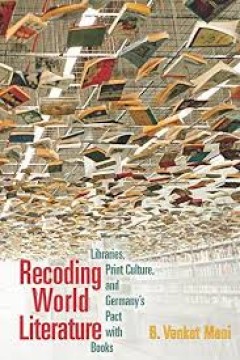
Recoding world literature: libraries, print culture, and Germany's pact with …
From the current vantage point of the transformation of books and libraries, B. Venkat Mani presents a historical account of world literature. By locating translation, publication, and circulation along routes of “bibliomigrancy,” Mani narrates how world literature is coded and recoded as literary works find new homes on faraway bookshelves. Mani argues that the proliferation of world liter…
- Edition
- First edition.
- ISBN/ISSN
- 9780823273409 (hardcover)
- Collation
- 348 pages : illustrations, maps ; 23 cm
- Series Title
- -
- Call Number
- 809.3 MAN r

Handbook of genomics, health & society
edited by Sahra Gibbon, Barbara Prainsack, Stephen Hilgartner and Janelle Lamoreaux.
- Edition
- -
- ISBN/ISSN
- 9781138211957 (hbk)
- Collation
- xix, 316 pages ; 26 cm
- Series Title
- -
- Call Number
- -
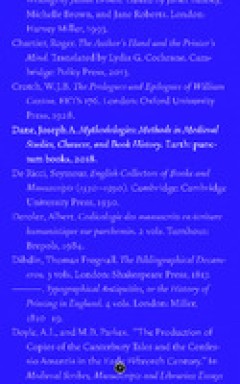
Mythodologies: Methods in Medieval Studies, Chaucer, and Book History
Mythodologies challenges the implied methodology in contemporary studies in the humanities. We claim, at times, that we gather facts or what we will call evidence, and from that form hypotheses and conclusions. Of course, we recognize that the sum total of evidence for any argument is beyond comprehension; therefore, we construct, and we claim, preliminary hypotheses, perhaps to organize the ch…
- Edition
- -
- ISBN/ISSN
- 9781947447578
- Collation
- 292 p.
- Series Title
- -
- Call Number
- 001.30721 DAN m
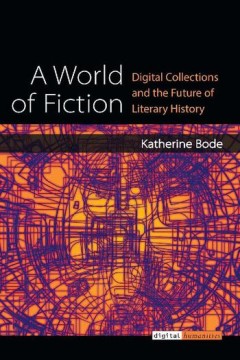
A world of fiction : digital collections and the future of literary history
During the 19th century, throughout the Anglophone world, most fiction was first published in periodicals. In Australia, newspapers were not only the main source of periodical fiction, but the main source of fiction in general. Because of their importance as fiction publishers, and because they provided Australian readers with access to stories from around the world—from Britain, America an…
- Edition
- -
- ISBN/ISSN
- 9780472130856
- Collation
- viii, 252p. : ill.
- Series Title
- -
- Call Number
- 809.3034 BOD a
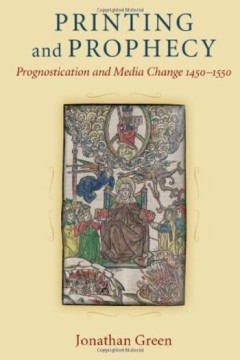
Printing and prophecy : prognostication and media change, 1450-1550
Printing and Prophecy: Prognostication and Media Change 1450-1550 examines prognostic traditions and late medieval prophetic texts in the first century of printing and their effect on the new medium of print. The many prophetic and prognostic works that followed Europe's earliest known printed book---not the Gutenberg Bible, but the Sibyl's Prophecy, printed by Gutenberg two years earlier and k…
- Edition
- -
- ISBN/ISSN
- 9780472117833
- Collation
- xi, 265p. : ill.
- Series Title
- -
- Call Number
- 261.51309409024 GRE p
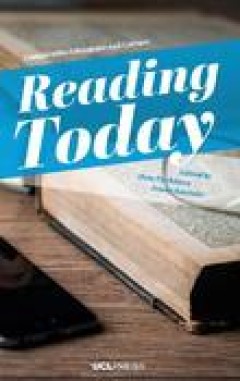
Reading Today
New technologies are changing our reading habits. Laptops, e-readers, tablets and other handheld devices supply new platforms for reading, and we must learn to manage them by scrolling, clicking or tapping. Reading Today places reading in current literary and cultural contexts in order to analyse how these contexts challenge our conceptions of who reads, what reading is, how we read, where we r…
- Edition
- -
- ISBN/ISSN
- 9781787351950
- Collation
- X, 199 p.
- Series Title
- -
- Call Number
- 028 REA r
 Computer Science, Information & General Works
Computer Science, Information & General Works  Philosophy & Psychology
Philosophy & Psychology  Religion
Religion  Social Sciences
Social Sciences  Language
Language  Pure Science
Pure Science  Applied Sciences
Applied Sciences  Art & Recreation
Art & Recreation  Literature
Literature  History & Geography
History & Geography